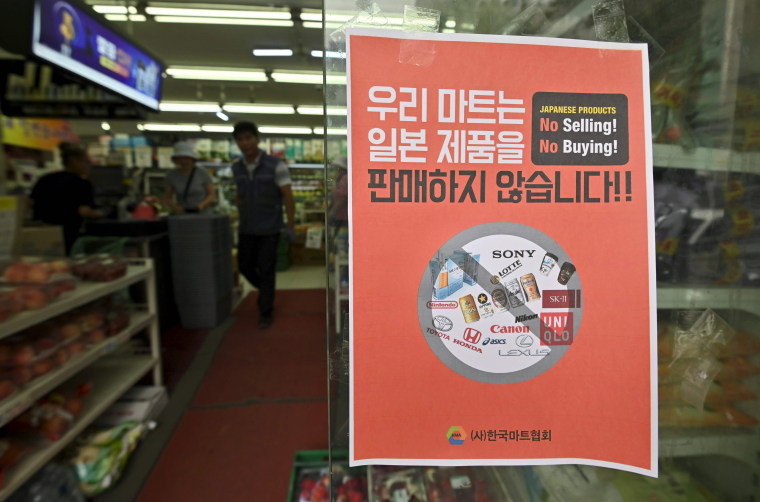National security adviser John Bolton departed on Saturday for a trip to Japan and South Korea as a trade dispute between the two countries shows no signs of easing.
A White House National Security Council spokesman said on Twitter that Bolton planned to "continue conversations with critical allies and friends."
President Donald Trump on Friday offered his help to ease tensions in the political and economic rift between the United States' two biggest allies in Asia, which threatens global supplies of memory chips and smartphones.
Lingering tensions, particularly over the issue of compensation for South Koreans forced to work for Japanese occupiers during World War Two, worsened this month when Japan restricted exports of high-tech materials to South Korea.
Japan has denied that the dispute over compensation is behind the export curbs, even though one of its ministers cited broken trust with Seoul over the labor dispute in announcing the restrictions.
The export curbs could hurt global technology companies.
Japan's foreign minister said Friday that Tokyo will take "necessary measures" against South Korea if the interests of Japanese companies are harmed in the escalating dispute.
Trump told reporters at the White House later that day that that South Korean President Moon Jae-in had asked him if he could get involved.
"If they need me, I'm there. Hopefully they can work it out. But they do have tension, there's no question about it," he said, adding "it's a full-time job getting involved between Japan and South Korea."
In Seoul, a 78-year-old South Korean man died hours after setting himself ablaze near the Japanese Embassy on Friday, police said.
Police said the man had phoned an acquaintance earlier to say he planned to self-immolate to express his antipathy toward Japan. Kim's family told investigators that his father-in-law had been conscripted as a forced laborer during the Japanese occupation.
During his trip, Bolton is also likely to seek support for a U.S. initiative to heighten surveillance of vital Middle East shipping lanes, which has been greeted warily by allies reluctant to raise tensions with Iran, which Washington blames for attacks on tankers.
Japanese media has said the issue could be on the agenda when Bolton visits Japan, where any military commitment abroad would risk inflaming a divide in public opinion in a country whose armed forces have not fought overseas since World War Two.
A South Korean official said last week Washington had yet to make any official request to Seoul on the issue.
Japan is the world's fourth-biggest oil buyer and 86% of its oil supplies last year passed through the Strait of Hormuz, a vital shipping route linking Middle East oil producers to markets in Asia, Europe, North America and beyond.
Japan's position is complicated by the fact that it has maintained friendly ties with Iran which it would be reluctant to damage.
Japanese Prime Minister Shinzo Abe made an unsuccessful bid to ease tensions in the region when he met Iranian leaders in Tehran last month.


